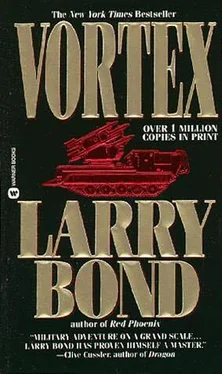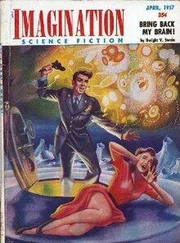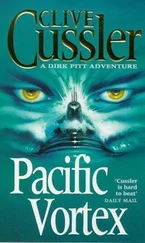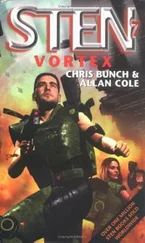“Mike’s right, Colonel. I don’t mind taking risks to accomplish a mission, but this thing’s nothing but risks.” Charlie Company’s CO, Capt.
Tom Keller, shook his head.
“Why can’t the flyboys plaster the frigging place with a few precision-guided munitions? Or why not hit it with a
Tomahawk strike?”
“Good question, Tom.” O’Connell remembered raising the same objections three days ago when he’d first heard about this crazy stunt. It felt as if a lifetime had passed since then.
“Unfortunately, our lords and masters have a very good reason for wanting our very special services.
Aside from thinking we look swell in our black berets, that is.”
That drew a quick laugh.
He stepped closer to the collection of satellite photos and pointed to a rectangular cluster of squat, camouflaged bunkers labeled WPN STOR
(N).
“Right now, the South Africans have ten nukes stashed away in these bunkers-protected by several meters’ worth of dirt, concrete, and reinforced steel. Navy or Air Force planes could hit the site hard. No doubt about that at all. Trouble is, we’d never know for sure whether or not all ten bombs were actually destroyed-or simply buried. “
O’Connell let the officers mull that one over for a moment, waiting until their murmurs died away.
“You’ve got it. As long as there’s the slightest chance that Pretoria still owns a working nuke, we can’t risk bringing our ships and Marines within range of their coast. If even one bomb got through, we’d be looking at ten or twenty ships sunk and thousands of our guys dead. “
He rapped the taped sheet of satellite photos.
“Nope, gentlemen. There’s only one hundred-percent-guaranteed way to be sure these bastards don’t have any nukes left. ” He bared his teeth.
“And that’s to lay our own hot little hands on ‘em and take ‘em away. Right?”
Several heads nodded, Carrerra’s and Keller’s among them. All of the assembled Rangers looked more determined-not much more confident-but definitely more de ten-nined.
One of the younger lieutenants raised a hesitant hand.
“What about air support, sir?”
“F-14 Tomcats will be covering us during our extraction. Plus the Navy plans to launch diversionary air attacks on several major South African bases and command posts just as we’re going in.” O’Connell jerked a thumb toward a succession of black-ringed facilities that included the Voortrekker Heights Military Camp.
“But that’s not all the help we’re going to get, gentlemen. Apparently, the
Israelis have offered us the services of one of their top nuclear scientists. ” He checked a note card.
“The prof’s name is Esher Levi, and he’s supposed to be an expert on the design, use, and safe handling of the kind of bombs we’re going hunting for.”
O’Connell paused, looking for the dour face of his Support Platoon commander.
“He’ll be training your special teams, Harry. It
The lieutenant nodded.
“What’s more, this Levi character worked at Pelindaba for more than two years. So let’s pump him dry once he gets here. Find out where the weak spots are, okay?”
Heads nodded vigorously throughout the room. Access to someone with detailed knowledge of Pelindaba’s buildings, grounds, and security procedures would make it much easier to plan the assault. Satellite photos and out-of-date maps were a lousy substitute for firsthand experience.
O’Connell scanned the rows of tough, young faces in front of him. Nobody looked wildly optimistic, but mission success didn’t require optimism-just competence and professionalism. He’d accomplished as much as he could reasonably hope for in a single briefing pep talk.
Now it was time to get back to the grind of actually putting this crazy operation together. Brave Fortune existed as a skeletal outline, but the
I st and 2nd Battalions’ officers and men still had a tremendous amount of work left to do. Board and computer simulations to test variations of the basic attack plan. Dry runs through full-scale mock-ups already being built by the base engineers and service troops. And they’d need to hold a seemingly endless series of conferences with Air Force and Navy liaisons to make sure that units of all three services understood their assigned roles.
He moved forward again to the edge of the dais.
“Very well, gentlemen.
That’s it for now.”
He held up a hand to still a sudden buzz of comment.
“Brave Fortune is slated for December sixth. So we have less than two weeks to get this plan and our Rangers whipped into shape. That’s not much time. Don’t waste it.”
Carrerra, already standing to go, nodded gravely.
HEADQUARTERS, 20TH CAPE RIFLES, VOORTREKKER HEIGHTS MILITARY CAMP,
NEAR
PRETORIA
Commandant Henrik Kruger was a troubled man. At first, he’d thought it would be easy to shelter Emily, the American reporter, and their black driver for a short while before slipping them off the base and away to safety. Cuba’s surprise invasion had wrecked that first plan.
With Voortrekker Heights on continuous full alert, his three fugitives were trapped. Emily was no real problem. She’d simply become his new civilian secretary, a Miss ter Horst. And he’d put the black, Sibena, to work as a camp servant. Nobody in the South African military thought twice about seeing a black engaged in menial labor. But Sheffield, the American, was a problem. He’d been forced to spend the last nine days hiding inside
Kruger’s own quarters-moving into the bedroom whenever junior officers or others visited their commanding officer.
Kruger smiled thinly. He wasn’t sure who would go mad first-the American or him. Their natural friction over Emily was bad enough, but wildly varying attitudes, opinions, and habits only made matters worse. Neither of them was really suited to life as anything but a self-sufficient bachelor, he decided-all too aware that Emily had other plans for this Ian Sheffield. He veered away from such thoughts. Jealousy was a corrosive emotion.
Better to focus on more concrete matters, on military matters.
Cuba’s invasion hadn’t just made it impossible for Emily and the others to escape, it had also ended his own tentative plans to rebel-at least for the time being. Despite all of the Vorster government’s crimes, no Afrikaner could contemplate abandoning his fellows to the savagery of a communist attack.
Given that, he couldn’t understand why he and his men hadn’t already been sent into combat against the Cubans. True, the 20this rifle and heavy weapons companies were still understrength and woefully under equipped but they were proven fighting units. And South Africa needed every available man, gun, and armored vehicle up on the firing line.
Vorster’s propaganda broadcasts claimed that the Cubans were being driven back in disarray. Kruger knew the truth. His friend on de Wet’s staff,
Brig. Deneys Coetzee, kept him fully informed. The Cuban columns, though slowed in the north and east, were still pushing hard for Pretoria and the mines. So why not send the 20th Cape Rifles and the other battalions held around the capital into battle before it was too
late? They might not be able to stop Castro’s advancing armies, but they could certainly buy time for more troops to arrive from Namibia.
What was Karl Vorster planning? Had the man abandoned all hope and military common sense?
He stared eastward, away from the setting sun and into the gathering darkness. Something very strange was going on at Swartkop Air Base-just across the broad, multi lane strip of the Ben Schoeman Highway connecting
Pretoria with Johannesburg.
Lights were on all around the outer airfield perimeter, painfully bright against the twilight sky. Wheeled Ratel APCs and cannon-armed Rookiats were stationed at regular intervals along the length of the highway-their guns pointed out to the east and west. Kruger recognized the unit insignia painted on each vehicle-the stalking leopard of Frans Peiper’s 61st Transvaal Rifles.
Читать дальше












